Dish soap and vinegar cleaner: it’s the dynamic duo your home has been waiting for! Are you tired of battling stubborn grime and grease with harsh chemicals that leave your house smelling like a laboratory? I know I was! For generations, resourceful homemakers have turned to simple, natural ingredients to keep their homes sparkling. Think back to your grandmother’s cleaning rituals – chances are, vinegar was a star player.
This isn’t just some trendy new cleaning fad; it’s a return to time-tested wisdom. But why dish soap and vinegar cleaner, specifically? Well, the combination is surprisingly powerful. The dish soap helps to break down grease and dirt, while the vinegar acts as a natural disinfectant and deodorizer. Plus, it’s incredibly cost-effective!
In this DIY guide, I’m going to show you exactly how to create your own powerful, all-purpose cleaner using just dish soap and vinegar. We’ll cover everything from the perfect ratios to the best ways to use it around your home. Get ready to ditch those expensive, chemical-laden cleaners and embrace a simpler, greener, and more effective way to keep your home sparkling clean!
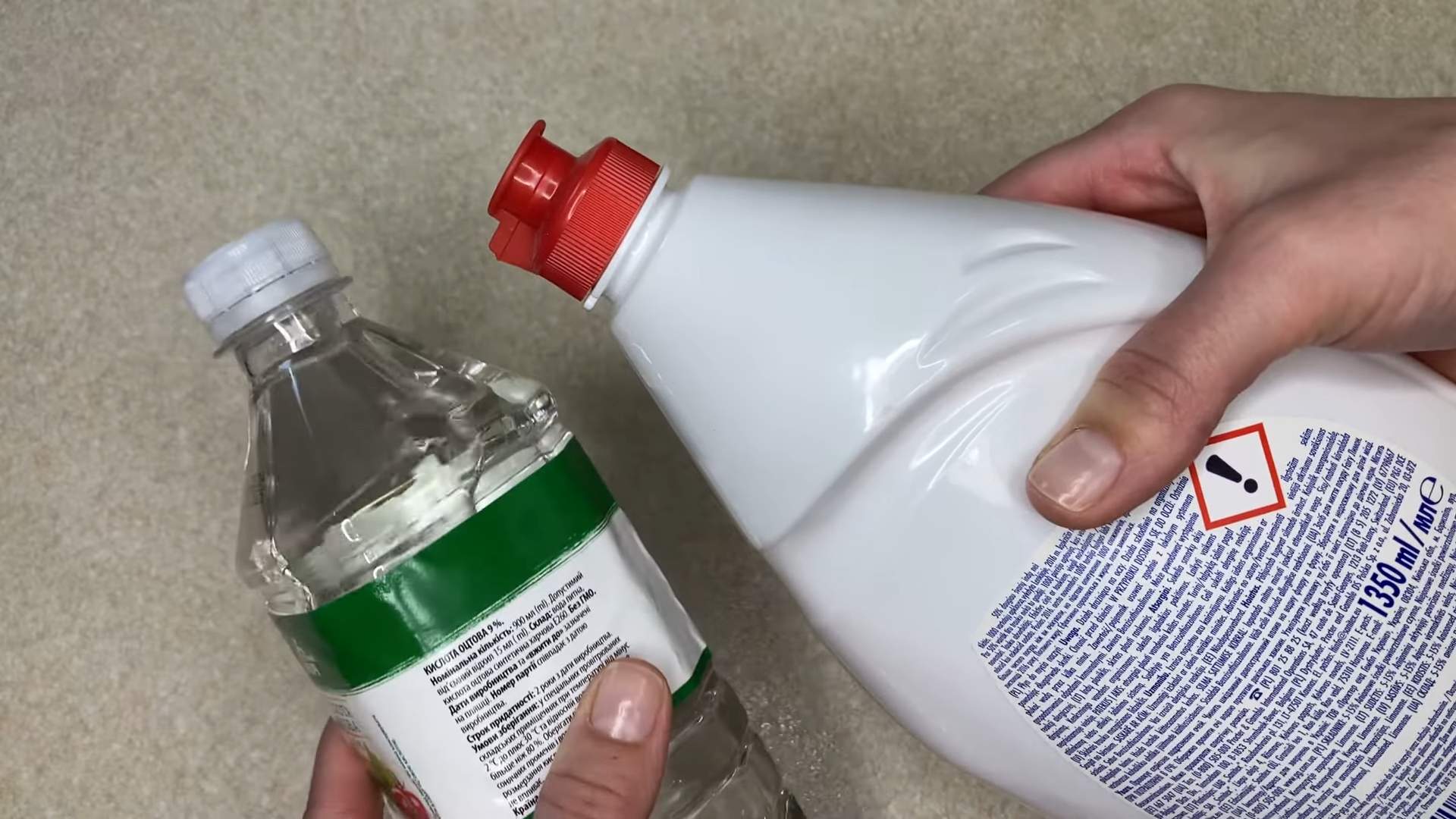
DIY All-Purpose Dish Soap and Vinegar Cleaner: A Sparkling Home Awaits!
Hey there, fellow DIY enthusiasts! Are you tired of spending a fortune on commercial cleaners filled with harsh chemicals? I know I was! That’s why I’m so excited to share my go-to recipe for an incredibly effective, all-purpose cleaner using just two simple ingredients you probably already have in your kitchen: dish soap and vinegar. This cleaner is fantastic for tackling grime, grease, and everyday messes all over your house. Let’s get started!
Why This Cleaner Works (and Why You’ll Love It!)
Before we dive into the how-to, let’s quickly chat about why this combination is so powerful. Vinegar, with its acetic acid, is a natural disinfectant and degreaser. It’s amazing at cutting through soap scum, hard water stains, and general gunk. Dish soap, on the other hand, is designed to break down grease and lift dirt. When you combine the two, you get a cleaning powerhouse that’s tough on messes but gentle on your wallet and the environment.
Important Note: While this cleaner is generally safe for most surfaces, avoid using it on natural stone like marble or granite. The acidity of the vinegar can etch these surfaces over time. Always test in an inconspicuous area first, just to be safe!
What You’ll Need
* Spray bottle (a clean, empty one, of course!)
* White vinegar
* Dish soap (I prefer a clear, unscented variety to avoid any potential staining or clashing scents, but any dish soap will work in a pinch)
* Water (optional, for dilution)
* Measuring cup or spoons (optional, but helpful for precise measurements)
* Funnel (optional, but makes pouring easier)
Step-by-Step Instructions: Mixing Your Cleaning Solution
Okay, let’s get down to business! Here’s how to whip up your own batch of this amazing cleaner:
1. Prepare Your Spray Bottle: Make sure your spray bottle is clean and dry. Any residue from previous cleaners could react with the vinegar and dish soap, so it’s best to start fresh.
2. Add Vinegar: Pour 1 cup of white vinegar into your spray bottle. I usually use a measuring cup to be precise, but you can eyeball it if you’re feeling confident.
3. Add Dish Soap: Now, here’s the slightly tricky part. You want to add just enough dish soap to boost the cleaning power without creating excessive suds. I recommend starting with 1 tablespoon of dish soap. You can always add a little more if needed, but too much will make rinsing a pain.
4. Dilute (Optional): If you find the vinegar scent too strong, or if you’re using the cleaner on more delicate surfaces, you can dilute it with water. Add 1 cup of water to the spray bottle. This will make the solution less concentrated and gentler.
5. Gently Mix: This is crucial! Don’t shake the bottle vigorously. This will create a ton of bubbles that will take forever to settle. Instead, gently swirl the bottle to combine the ingredients. You want the vinegar and dish soap to mix without creating a sudsy mess.
6. Test Spray: Before you go wild cleaning everything in sight, do a test spray in an inconspicuous area. This will ensure that the cleaner doesn’t damage or discolor the surface. Let it sit for a few minutes, then wipe it away with a clean cloth. If everything looks good, you’re ready to go!
Using Your Dish Soap and Vinegar Cleaner: Cleaning Like a Pro
Now that you have your cleaning solution ready, let’s talk about how to use it effectively.
1. Spray the Surface: Generously spray the surface you want to clean. Make sure to cover the entire area, especially any spots with visible dirt or grime.
2. Let It Sit: Give the cleaner a few minutes to work its magic. This allows the vinegar and dish soap to break down the dirt and grease. For tougher messes, you might want to let it sit for 5-10 minutes.
3. Wipe Clean: Use a clean cloth, sponge, or paper towel to wipe away the cleaner and the dirt. For stubborn spots, you might need to scrub a little.
4. Rinse (If Necessary): Depending on the surface and the amount of cleaner you used, you might need to rinse with water. This is especially important for surfaces that come into contact with food, like countertops and cutting boards.
5. Dry: Use a clean, dry cloth to dry the surface. This will prevent water spots and leave your surfaces sparkling clean.
Where to Use Your DIY Cleaner: A Cleaning Arsenal
This cleaner is incredibly versatile and can be used on a variety of surfaces throughout your home. Here are some of my favorite uses:
* Kitchen Counters: This cleaner is fantastic for wiping down kitchen counters after cooking. It cuts through grease and food splatters with ease.
* Sinks and Faucets: Say goodbye to soap scum and hard water stains! This cleaner will leave your sinks and faucets sparkling.
* Stovetops: This cleaner is great for removing grease and food residue from stovetops. Just be sure to let the stovetop cool down completely before spraying.
* Microwaves: Clean up splatters and spills inside your microwave with this cleaner. Just spray, let it sit for a few minutes, and wipe clean.
* Bathroom Tiles: This cleaner is perfect for cleaning bathroom tiles and grout. It helps to remove soap scum and mildew.
* Shower Doors: Keep your shower doors sparkling clean with this cleaner. It helps to prevent soap scum buildup.
* Toilets: This cleaner can be used to clean the outside of your toilet. Just spray, wipe, and rinse.
* Floors (Certain Types): This cleaner can be used on certain types of floors, such as tile and linoleum. However, avoid using it on hardwood floors, as the vinegar can damage the finish. Always test in an inconspicuous area first.
* Windows and Mirrors: For streak-free shine, dilute the solution with more water and use a microfiber cloth.
Troubleshooting: Common Issues and Solutions
Even with the best instructions, sometimes things don’t go exactly as planned. Here are some common issues you might encounter and how to fix them:
* Too Many Suds: If you added too much dish soap, you might end up with a lot of suds. This can make rinsing difficult. To fix this, simply dilute the cleaner with more water.
* Strong Vinegar Smell: If the vinegar smell is too strong for your liking, you can dilute the cleaner with more water or add a few drops of essential oil to mask the scent. Lavender, lemon, and eucalyptus are all great options.
* Streaking: If you’re experiencing streaking, it could be due to hard water or residue from previous cleaners. Try using distilled water to make your cleaner and make sure to rinse thoroughly.
* Cloudy Solution: Sometimes, the vinegar and dish soap can react and create a cloudy solution. This is usually nothing to worry about and doesn’t affect the cleaning power of the cleaner. However, if you’re concerned, you can try using a different brand of dish soap.
Variations and Add-Ins: Customize Your Cleaner
Want to take your DIY cleaner to the next level? Here are a few variations and add-ins you can try:
* Essential Oils: Add a few drops of your favorite essential oil to give your cleaner a pleasant scent and boost its cleaning power. Tea tree oil is a great option for its antibacterial properties.
* Lemon Juice: Add a tablespoon of lemon juice to your cleaner for extra degreasing power and a fresh, citrusy scent.
* Baking Soda: For extra scrubbing power, sprinkle a little baking soda on the surface before spraying with the cleaner.
Safety First: Important Precautions
While this cleaner is generally safe, it’s important to take a few precautions:
* Keep out of reach of children and pets.
* Avoid contact with eyes. If contact occurs, rinse thoroughly with water.
* Do not mix with bleach or other harsh chemicals. This can create dangerous fumes.
* Always test in an inconspicuous area before using on a new surface.
Storage: Keeping Your Cleaner Fresh
Store your DIY cleaner in a cool, dark place. It should last for several months. If you notice any changes in color or odor, it’s best to discard it and make a fresh batch.
So there you have it! My complete guide to making and using your own all-purpose dish soap and vinegar cleaner. I hope you find it as helpful and effective as I do. Happy cleaning!
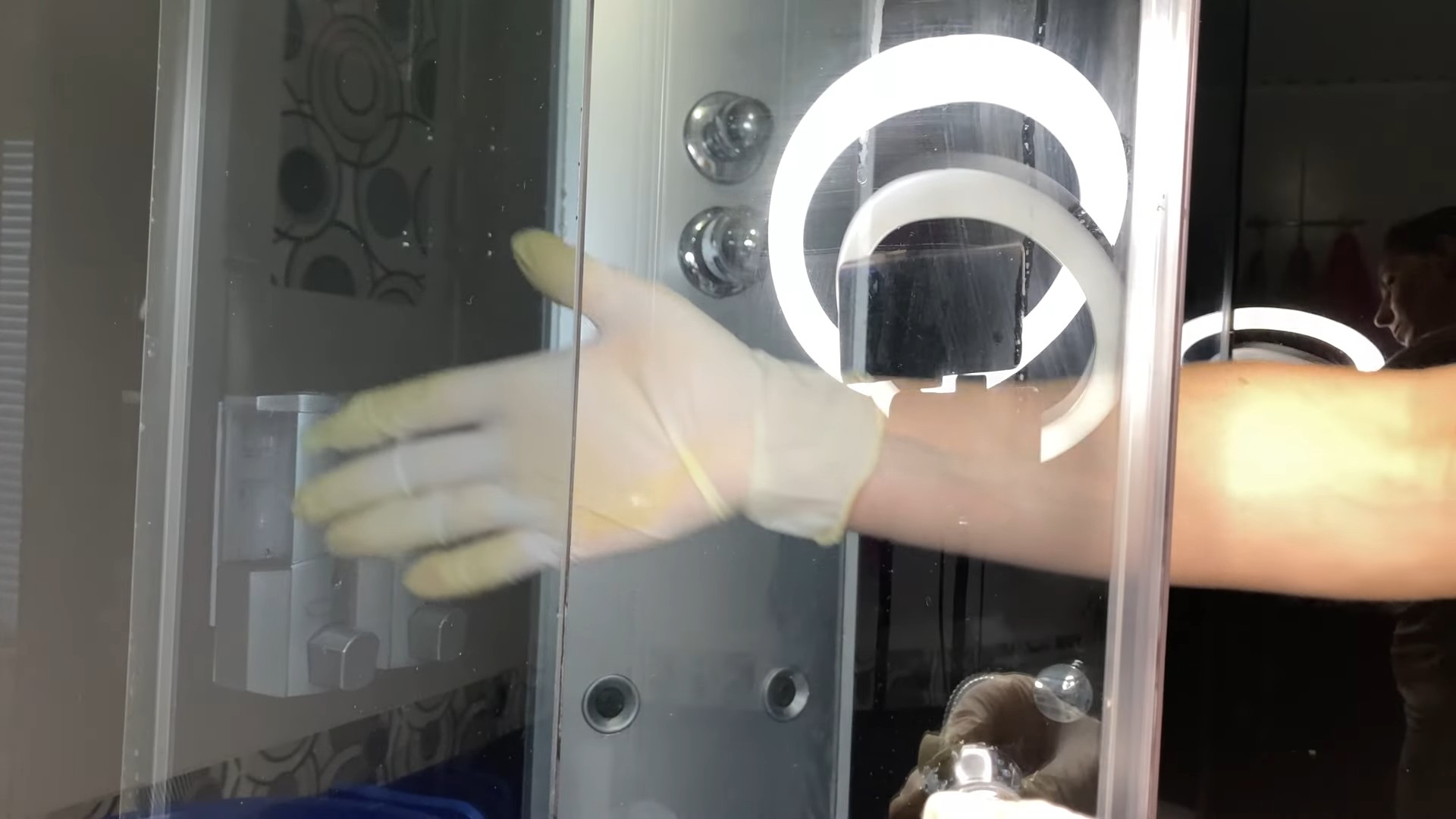
Conclusion
So, there you have it! This simple yet incredibly effective DIY dish soap and vinegar cleaner is more than just a cleaning solution; it’s a game-changer for your home. We’ve explored how these two humble ingredients, readily available in most households, can be combined to create a powerful, all-purpose cleaner that tackles grease, grime, and everyday messes with ease.
Why is this DIY trick a must-try? Because it’s cost-effective, eco-friendly, and surprisingly potent. Forget about spending a fortune on harsh chemical cleaners that can irritate your skin and pollute your home. This dish soap and vinegar cleaner offers a natural alternative that’s gentle on your family and the environment, while still delivering exceptional cleaning results. It’s a win-win!
Beyond its cleaning prowess, this solution is incredibly versatile. Use it on countertops, sinks, showers, toilets, floors (test in an inconspicuous area first!), and even as a pre-treatment for laundry stains. The possibilities are endless!
Looking for ways to customize your cleaner? Consider these variations:
* Lemon Infusion: Add lemon peels to your vinegar for a citrusy scent and extra degreasing power. Let the peels steep in the vinegar for a week before mixing with dish soap.
* Essential Oil Boost: A few drops of your favorite essential oils, like lavender, tea tree, or eucalyptus, can add a pleasant fragrance and antibacterial properties.
* Baking Soda Scrub: For stubborn stains, create a paste by mixing the dish soap and vinegar cleaner with baking soda. Apply to the stain, let it sit for a few minutes, and then scrub gently.
* Herbal Infusion: Infuse your vinegar with herbs like rosemary or thyme for a unique and refreshing scent.
We are confident that once you try this DIY dish soap and vinegar cleaner, you’ll be amazed by its effectiveness and simplicity. It’s a fantastic way to reduce your reliance on commercial cleaning products and create a healthier, cleaner home.
Now, it’s your turn! We encourage you to give this DIY trick a try and see the amazing results for yourself. Don’t be afraid to experiment with different variations and find what works best for you.
Most importantly, we want to hear about your experience! Share your tips, tricks, and before-and-after photos in the comments below. Let’s build a community of DIY cleaning enthusiasts and help each other create cleaner, healthier homes, one dish soap and vinegar cleaner solution at a time. We are excited to hear how this simple solution transforms your cleaning routine!
FAQ
Is this dish soap and vinegar cleaner safe to use on all surfaces?
While this cleaner is generally safe and effective, it’s always a good idea to test it in an inconspicuous area first, especially on delicate surfaces like marble, granite, or wood. Vinegar is acidic and can potentially damage certain materials. Avoid using it on waxed surfaces, as it can strip the wax. For natural stone surfaces, a pH-neutral cleaner is generally recommended. When in doubt, consult the manufacturer’s instructions for your specific surface.
What type of dish soap should I use?
Any standard dish soap will work for this recipe. However, avoid using dish soaps that contain bleach or other harsh chemicals, as these can react negatively with the vinegar. A clear, unscented dish soap is often a good choice, as it won’t add any unwanted colors or fragrances to your cleaner. You can also opt for a natural or eco-friendly dish soap to further reduce your environmental impact.
Why does the mixture sometimes separate?
Separation is normal with this type of DIY cleaner, as dish soap and vinegar are not naturally miscible. Simply shake the bottle well before each use to re-emulsify the mixture. The separation does not affect the cleaning power of the solution. If you find the separation particularly bothersome, you can try adding a small amount of a thickening agent, such as glycerin, to help keep the mixture more stable. However, this is usually not necessary.
Can I use this cleaner to disinfect surfaces?
While this dish soap and vinegar cleaner is effective at removing dirt, grease, and grime, it is not a disinfectant. Vinegar has some antibacterial properties, but it is not as effective as commercial disinfectants at killing all types of germs. If you need to disinfect a surface, especially in areas where there is a risk of foodborne illness, it is best to use a dedicated disinfectant cleaner. You can use the dish soap and vinegar cleaner for general cleaning and then follow up with a disinfectant if needed.
How long does this cleaner last?
This DIY cleaner does not have a long shelf life compared to commercial cleaners. It is best to make it in small batches and use it within a few weeks. Over time, the vinegar can degrade the dish soap, reducing its effectiveness. If you notice that the cleaner is becoming cloudy or has an unpleasant odor, it is time to discard it and make a fresh batch. Store the cleaner in a cool, dark place to help prolong its shelf life.
Can I use this cleaner in a spray bottle?
Yes, this cleaner works perfectly well in a spray bottle. In fact, it is often the most convenient way to apply it to surfaces. Just make sure to use a spray bottle that is designed for cleaning solutions and that is not made of a material that could be damaged by vinegar. Label the bottle clearly so that you don’t accidentally mistake it for something else.
What is the best ratio of dish soap to vinegar?
The recommended ratio is typically equal parts dish soap and vinegar. However, you can adjust the ratio to suit your specific needs. For tougher cleaning jobs, you can increase the amount of vinegar. For lighter cleaning, you can use more dish soap. Experiment to find the ratio that works best for you.
Is there anything I should not mix with vinegar?
Yes, never mix vinegar with bleach. This combination creates toxic chlorine gas, which can be very dangerous. Also, avoid mixing vinegar with ammonia, as this can create harmful fumes. Always use vinegar separately from other cleaning products, unless you are absolutely sure that they are compatible.
Can I use this cleaner on my car?
While you can use this cleaner on some parts of your car, such as the interior surfaces, it is generally not recommended for the exterior paint. Vinegar can be too harsh for car paint and can potentially damage the clear coat. For cleaning your car’s exterior, it is best to use a dedicated car wash soap.
What if I don’t like the smell of vinegar?
The smell of vinegar can be off-putting to some people. Fortunately, there are several ways to mask or eliminate the vinegar smell. As mentioned earlier, you can infuse the vinegar with lemon peels or herbs to add a more pleasant fragrance. You can also add a few drops of your favorite essential oils to the cleaner. The vinegar smell will typically dissipate quickly after cleaning.

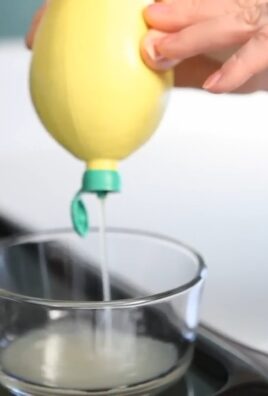
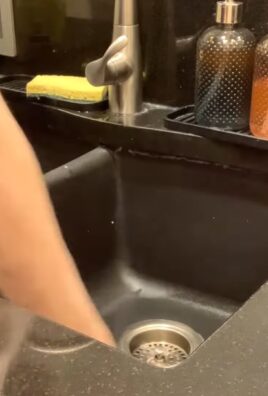
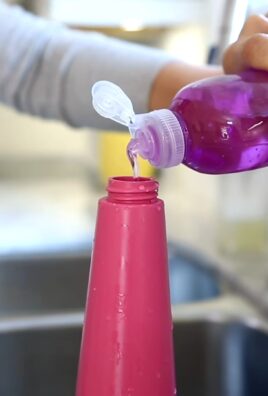
Leave a Comment